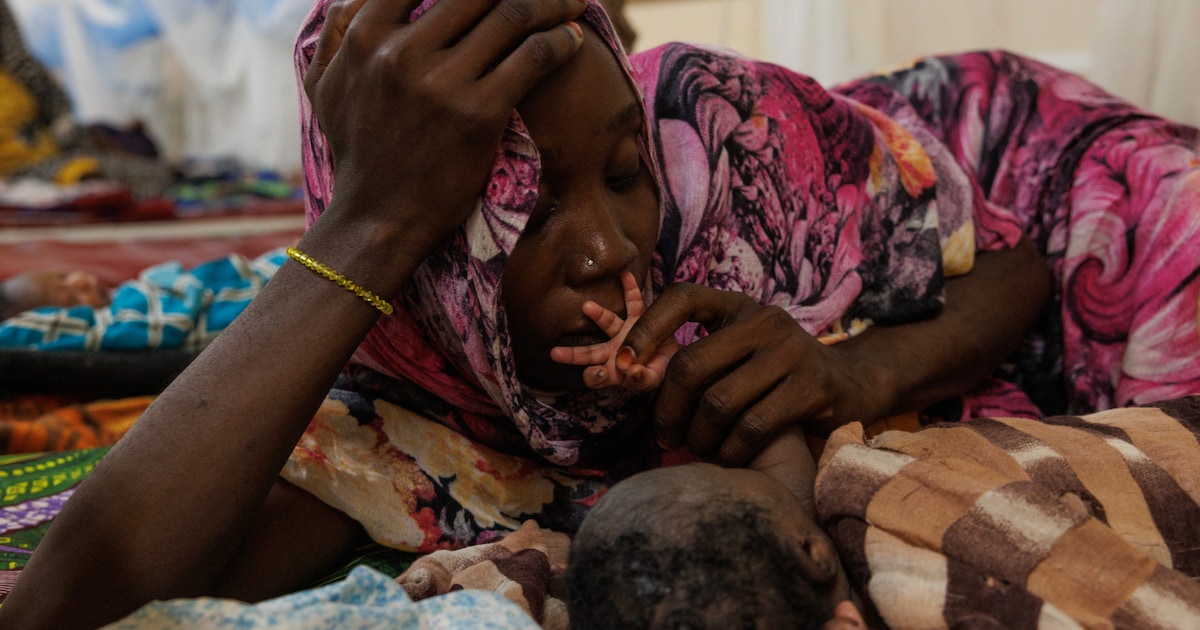
Al-Fashir was the last town in the Darfur region of western Sudan where black African residents still felt somewhat safe from ethnic violence. Because it is the only city in Darfur where the Sudanese army still has power. But this safe haven has become a front line. The paramilitary Rapid Support Forces (RSF) have surrounded the city. The eight hundred thousand Sudanese still in the city have nowhere to go. And this is especially dangerous for the black population.
The siege of Al-Fashir is the latest and deeply sad chapter in Sudan’s civil war. The Sudanese army and the RSF have been fighting for power in this East African country for a year. But even as it becomes increasingly clear that another genocide threatens the country, it is not possible to draw the world’s attention to Sudan.
About the Author
Iva Venneman is foreign editor of by Volkskrant.
Ethnic cleansing
The RSF is affiliated with the Janjaweed, the militia blamed for the ethnic cleansing that took place in Western Darfur twenty years ago. 300,000 African Sudanese were killed. The same is likely to happen in the current war. Last year, 400,000 civilians fled to neighboring Chad due to the capture of the city of El Geneina. The FAR carried out ethnic cleansing among non-Arab population groups, according to reports by Human Rights Watch and Amnesty International.
The sporadic stories that emerge about it (the country is inaccessible to foreign journalists) are appalling. Gang rapes and seemingly random murders are no exception. The United Nations estimates that 14,000 people have died so far.
If the RSF takes Al-Fashir, the fear is that nothing will stand in the way of a large-scale massacre there. The United States warns that “history in Darfur will repeat itself in the worst possible way.”
All the risk factors that could lead to genocide are present in West Darfur, a distraught UN adviser, Alice Wairimu Nderitu, told the news conference. bbc. “I try to draw attention to this, but my voice is overshadowed by other wars, like those in Gaza and Ukraine.”
Convoys
Many Sudanese have fled. Nine million of the 47 million inhabitants have fled, most of them somewhere within the country itself. Only two million refugees managed to cross the border.
In addition to being the last stronghold of the Sudanese government in Darfur, Al-Fashir was a hub through which humanitarian aid reached the region. That route is now closed, as is the supply route through the capital, Khartoum, where there is also heavy fighting. Hunger also threatens the Sudanese.
The only food aid that still reaches Darfur, “very little,” comes through Chad, says Freek Haarmans. The Dutchman coordinates three projects in Sudan for the aid organization Danish Refugee Council. He is now temporarily in Kenya, but will soon return to the country.
Aid organizations no longer receive large convoys of food aid into the country. Because the parties in conflict try to prevent humanitarian aid from falling into the hands of the opposing party.
“Added to this is the fact that many Sudanese have been displaced, meaning they can no longer farm their own land,” says Haarmans. “Then you will understand the hunger there is now.” The UN still does not officially speak of famine. But 18 million Sudanese suffer from “acute famine.” 3.6 million children suffer from severe malnutrition.
Summit consultation
Sudanese in Al-Fashir are completely trapped in “deeply deplorable” circumstances, UN says. Both the Sudanese army and the RSF are bombing civilian targets. Hospitals and refugee camps have already been affected. The city is cut off from electricity and water. Health care has collapsed.
A solution seems distant at the moment. US Secretary of State Antony Blinken attempted to bring the warring parties back to the table last week. But the Sudanese government refused. Egypt is hosting a summit meeting this month that will be attended by government representatives. However, that is not acceptable either. The government accepted the invitation, but immediately demanded that some groups not be allowed to participate in the summit.